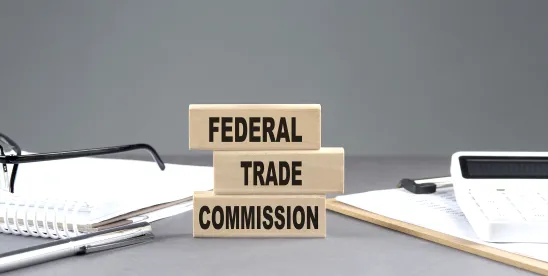In Ryan LLC v. Federal Trade Commission, the U.S. District Court for the Northern District of Texas enjoined the FTC from implementing or enforcing its noncompete ban (the “Final Rule”) mainly on the grounds that it exceeds the FTC’s statutory powers and is also “arbitrary and capricious.” Ryan LLC v. Federal Trade Commission, No. 3:24-cv-00986-E (July 3, 2024). The Final Rule was scheduled to become effective September 4, 2024. If it becomes effective, the Final Rule will ban nearly all noncompete agreements nationwide.
Importantly, the district court’s decision provides relief to only the plaintiffs in the Ryan LLC case and does not restrain the FTC from enforcing the Final Rule against other employers. The United States Chamber of Commerce (which had intervened in the case), filed a motion for reconsideration seeking to expand the preliminary injunction to all businesses nationwide but the court in a supplemental ruling denied that motion. The court stated its intent to issue a ruling on the ultimate merits by the end of August, just days before the Final Rule’s effective date.
Background
As we reported previously, the FTC voted along party lines 3-2 to issue the Final Rule essentially prohibiting employers nationwide from entering into or enforcing noncompete agreements with their workers. The Final Rule defined noncompete agreements broadly and contained narrow exceptions for asset purchase agreements and highly paid executives.
Ryan LLC quickly filed the lawsuit against the FTC seeking to enjoin the FTC’s Final Rule and the Chamber of Commerce intervened as an additional plaintiff. The plaintiffs filed motions for an injunction to prohibit enforcement of the Final Rule asserting that the FTC:
- lacked statutory authority under the Administrative Procedures Act to implement the Final Rule;
- violated the separation of powers of the U.S. Constitution by issuing the Final Rule;
- and acted arbitrarily and capriciously in issuing the Final Rule.
In response, the FTC argued that it was authorized by the FTC Act to issue substantive rules addressing unfair methods of competition, including prohibiting noncompete agreements, and that the Final Rule was the product of considered analysis, and not arbitrary or capricious.
The District Court’s Decision
In a lengthy, 33 page ruling holding that the Final Rule exceeded the FTC’s statutory authority, the court focused on the text of the FTC Act and, in particular, section 5 that authorizes the FTC to address “unfair methods of competition in or affecting commerce and unfair or deceptive acts or practices in or affecting commerce,” see 15 U.S.C. § 45(a)(2); and section 6 that arms the FTC with investigatory powers and “make rules and regulations for carrying out the provisions” of the Act. See 15 U.S.C. § 45(g). Contrary to the FTC’s arguments that the text of the FTC Act grants it broad rulemaking powers, the district court instead interpreted the FTC Act as limiting the FTC to adjudicative rulemaking.
The court framed the issue as: “The issue presented is whether the FTC’s ability to promulgate rules concerning unfair methods of competition include the authority to create substantive rules regarding unfair methods of competition.” Ruling at 14. The court answered: “[A]fter reviewing the text, structure, and history of the Act the Court concludes the FTC lacks the authority to create substantive rules through this method.” Ruling at 15. As determined by the court, the text of the FTC Act does not include the authority to issue substantive regulations. The court also considered the structure of the Act, which did not support the FTC’s interpretation, and the history of the Act, which showed 40 years when the FTC did not issue any substantive rules.
The court also ruled that the Final Rule is “arbitrary and capricious because it is unreasonably overbroad without a reasonable explanation. It imposes a one-size-fits-all approach with no end date, which fails to establish a ‘rational connection between the facts found [by the FTC supporting the rule] and the choice made.’” Ruling at 21 (citations omitted). The court criticized the “handful of studies” relied upon by the FTC for the noncompete rule. The court recognized that most states allow and regulate noncompete agreements, but that “no state has ever enacted a noncompete rule as broad [as] the FTC’s Non-Compete Rule.” Ruling at 21. The court also criticized the FTC’s decision to ignore specific factual situations for allowing noncompete agreements under state law in favor of the FTC’s categorical ban on noncompete agreements. Ruling at 21.
The court found that the FTC’s “sweeping prohibition instead of targeting specific, harmful non-competes, renders the rule arbitrary and capricious.” Ruling at 21-22. As stated by the court, “In sum, the Rule is based on inconsistent and flawed empirical evidence, fails to consider the positive benefits of non-compete agreements, and disregards the substantive body of evidence supporting these agreements.” Ruling at 22.
The district court also found that the plaintiffs met their burden of showing irreparable harm, the balance of the equities tipped in their favor, and the injunction will serve the public interest. Thus, the court found the plaintiffs met the standards for issuance of a preliminary injunction.
The remaining issue considered by the court was whether the court should issue a preliminary injunction limited to the plaintiffs or whether to issue a nationwide injunction. The court noted that the plaintiffs did not request a nationwide injunction, that recent case law instructed that nationwide injunctions are disfavored, and that the U.S. Chamber of Commerce did not seek associational standing for its nationwide members, which cut against issuing a nationwide injunction. Accordingly, at this time, court’s injunction only provides relief to the plaintiffs appearing before it: Eddy LLC and the U.S. Chamber of Commerce.
Other Pending Challenges
The Eddy LLC v. FTC decision was the first reported decision considering the enforceability of the FTC’s noncompete rule. However, other cases remain pending and they may affect the enforceability of the rule before its September 4, 2024 effective date. Those other cases include ATS Tree Services, LLC v. Federal Trade Commission, pending in the U.S. District Court for the Eastern District of Pennsylvania. The court is expected to issue a decision in that case on July 23, 2024. In addition, in June 2024, the U.S. Supreme Court issued its decision in Loper Bright Enterprises v. Raimondo, where the Court overturned Chevron U.S.A., Inc. v. National Resources Defense Council, Inc., curtailing the power of federal agencies to enact rules. It remains to be seen how Loper Bright affects the courts analyzing the FTC’s noncompete rule.
Employers or individuals with questions about the FTC’s Final Rule should consult with competent legal counsel.





 />i
/>i
